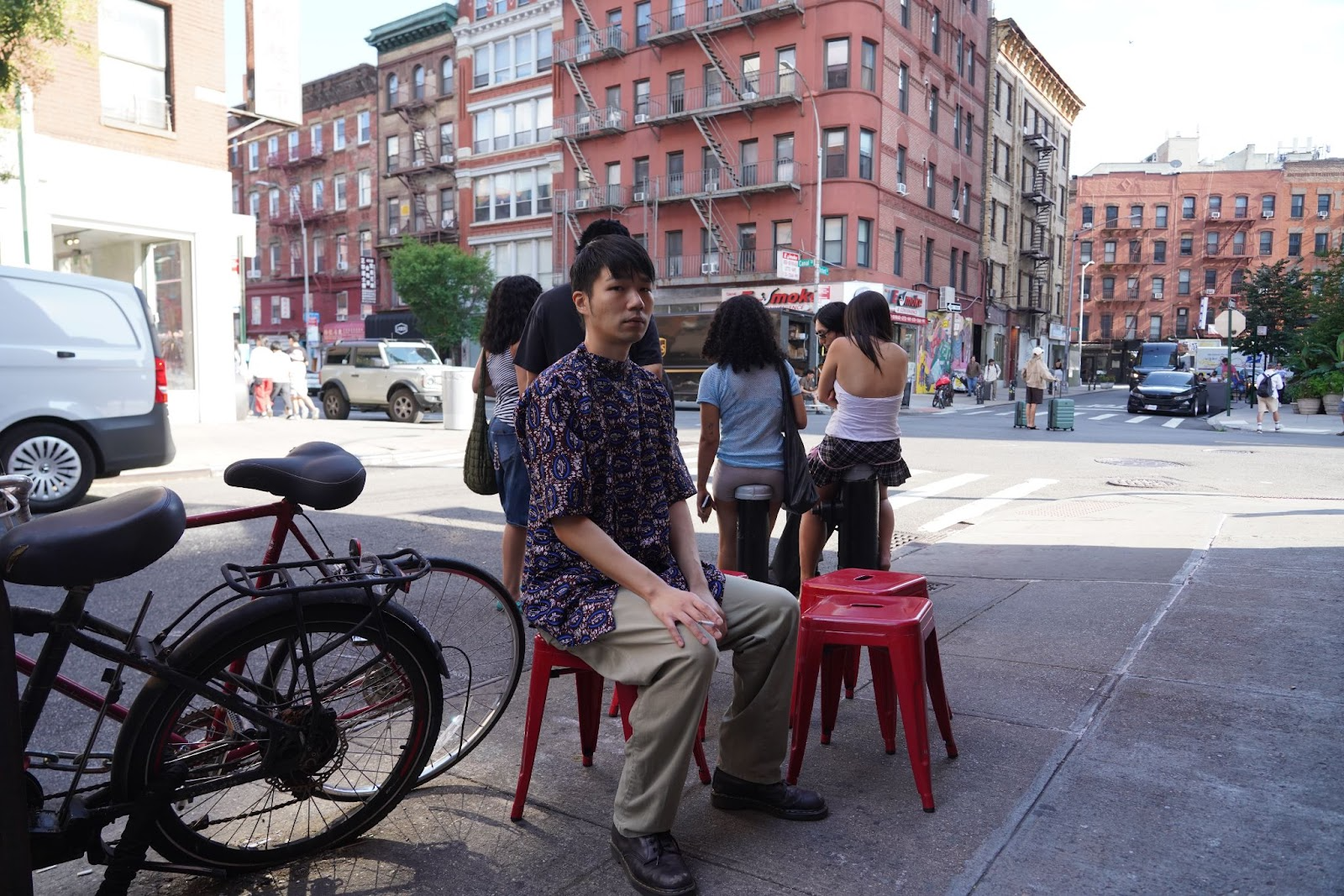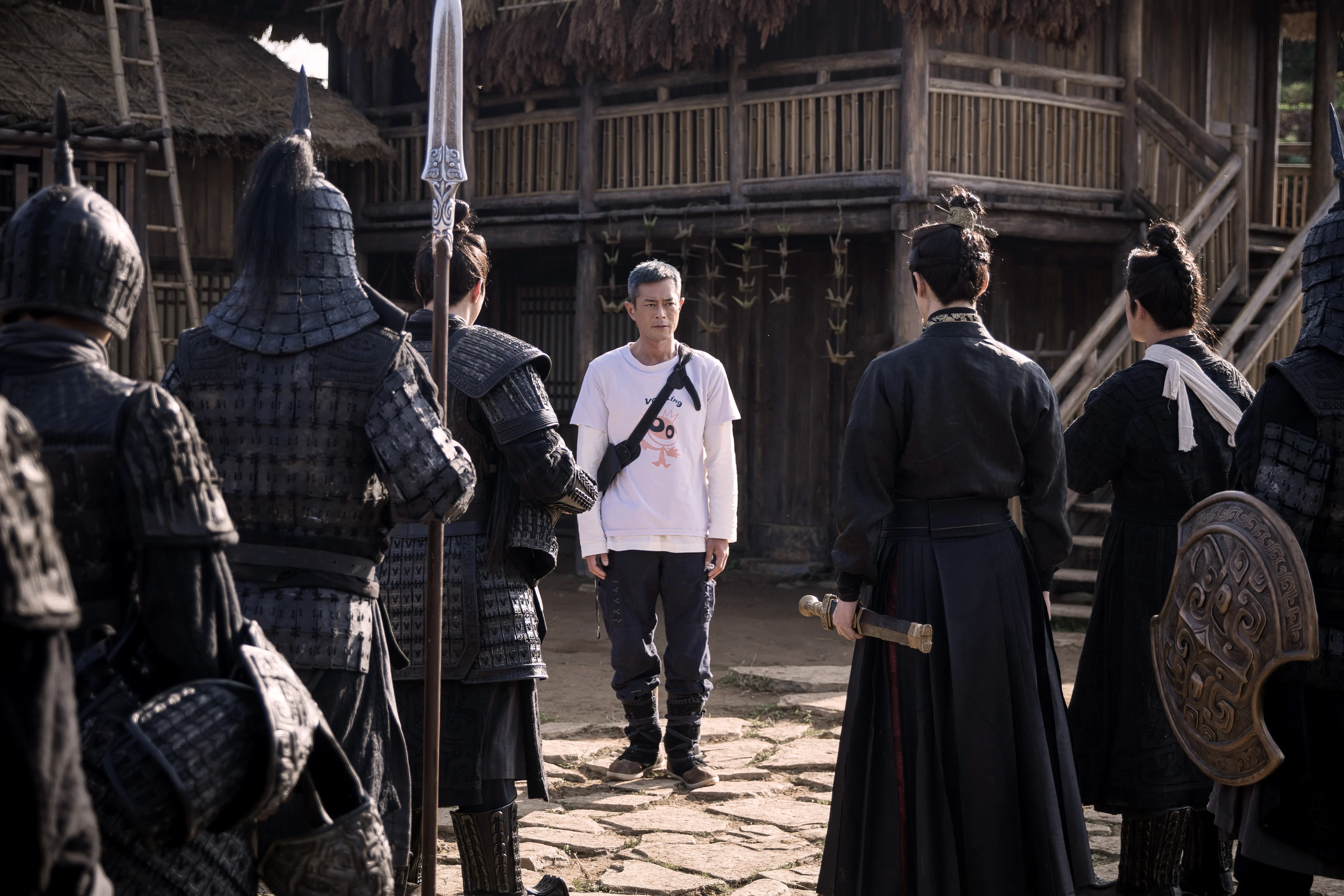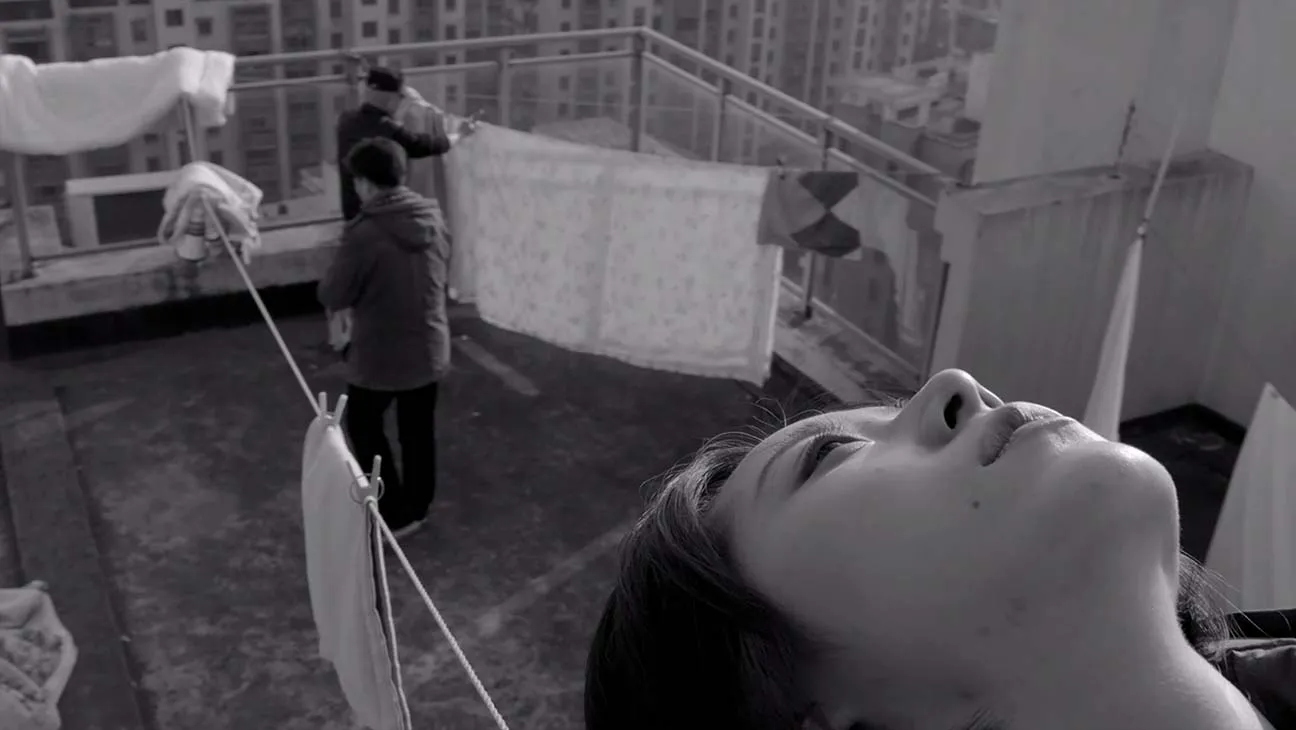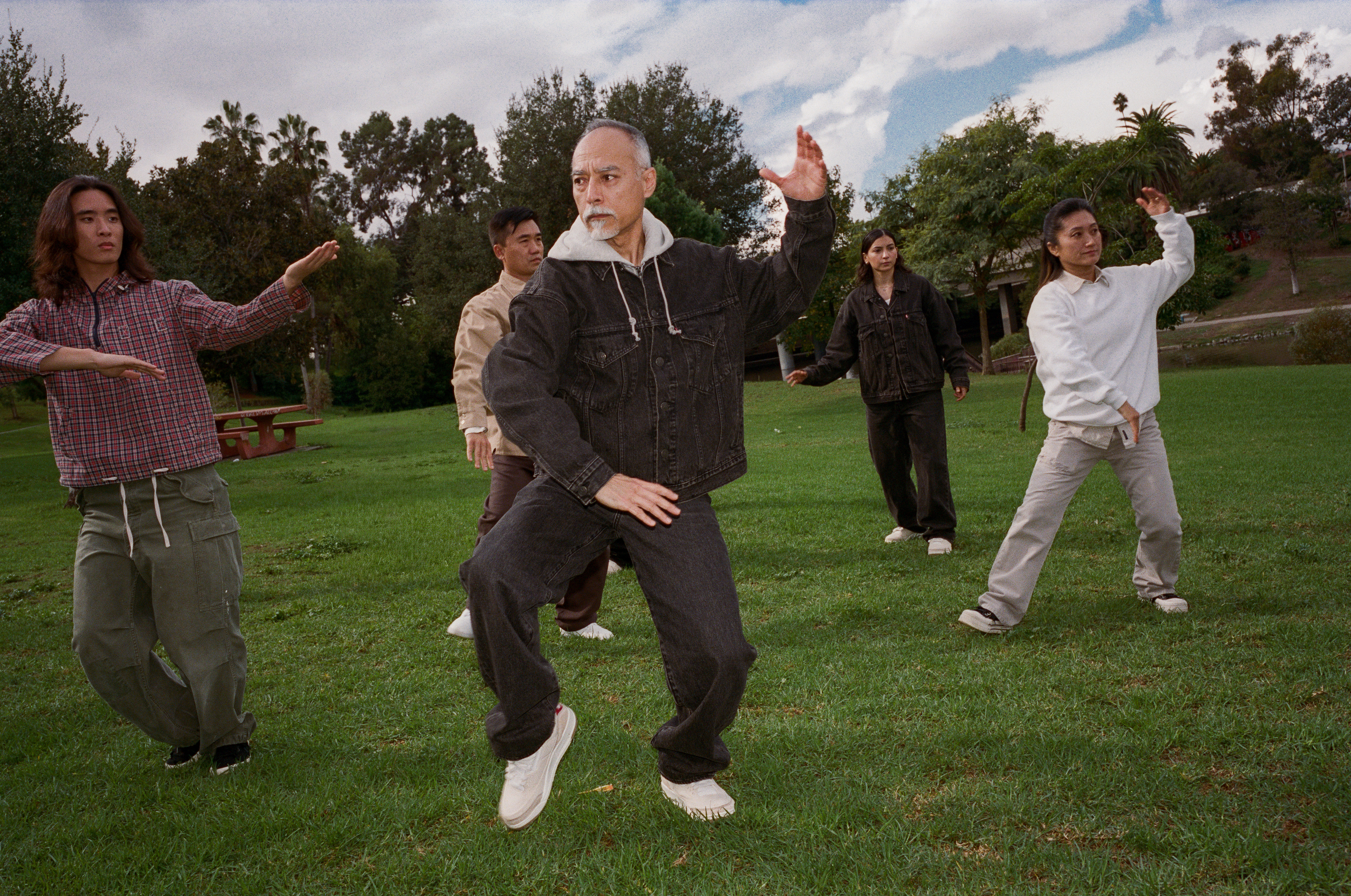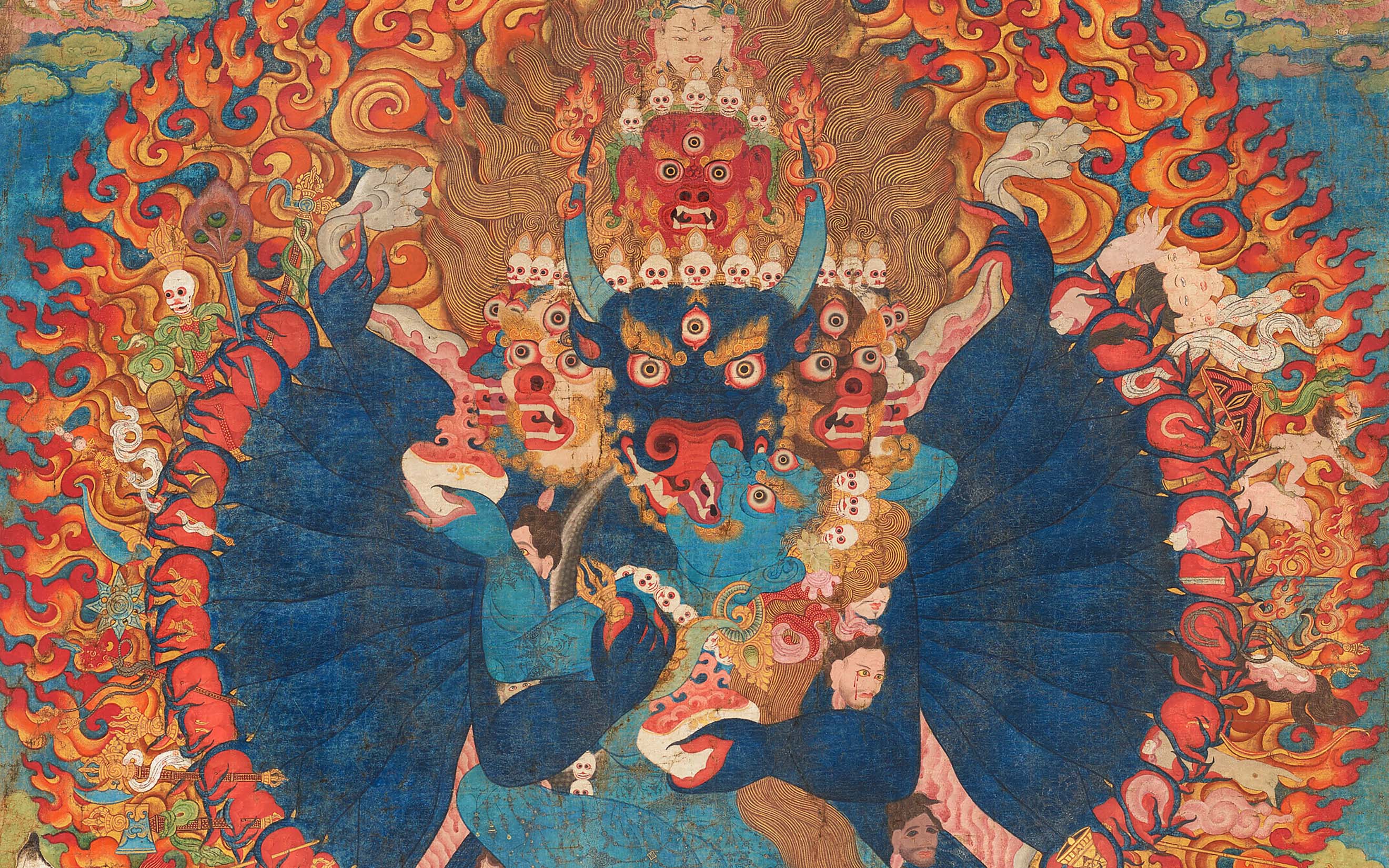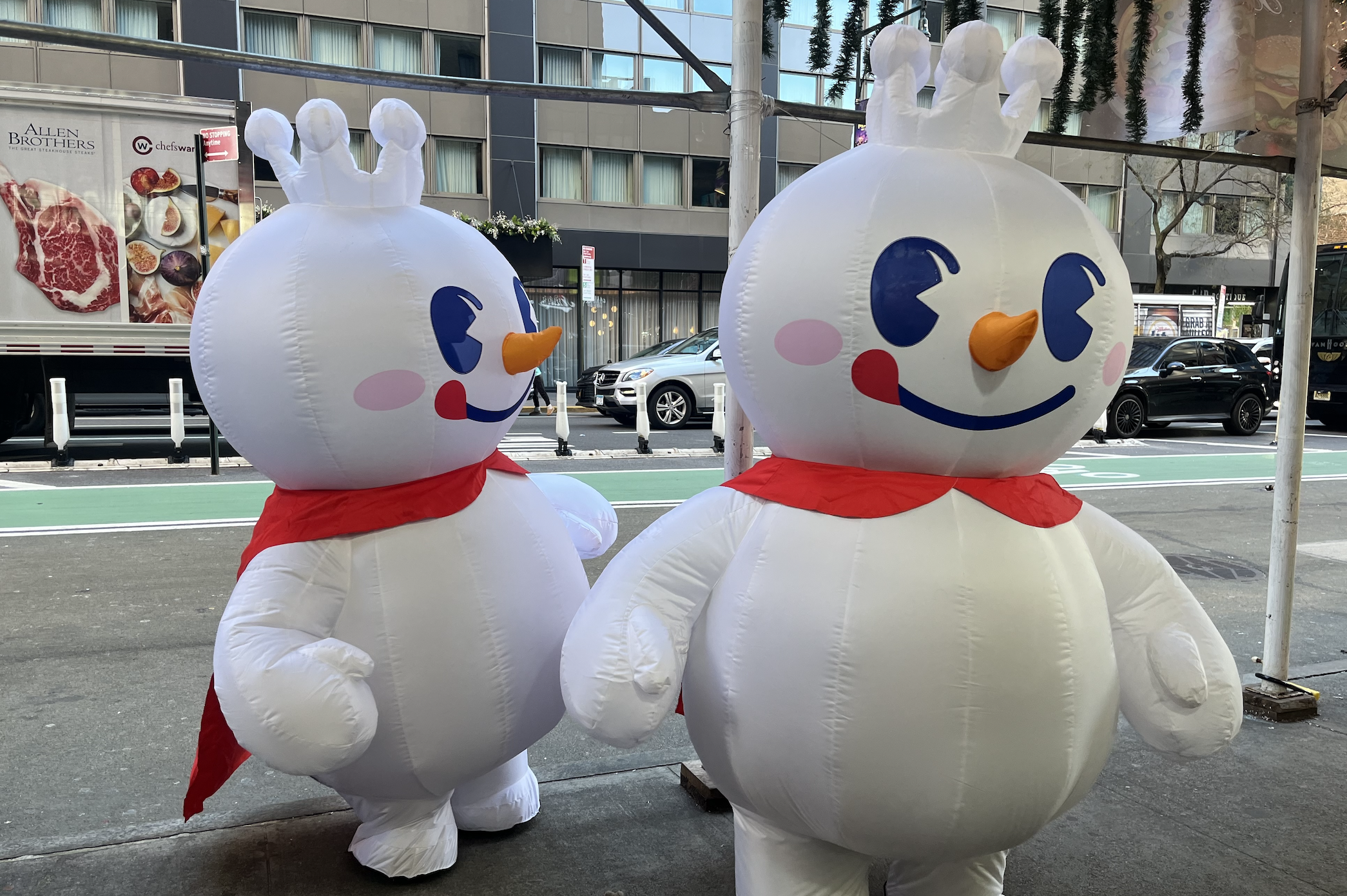RADII sat down with Jun Li at a coffee shop in Manhattan’s Chinatown, a day after the New York premiere of his latest film Queerpanorama at the School of Visual Arts (SVA) Theater space as part of the New York Asian Film Festival.
“Last night was the first time when a theater actually moved its curtains to fit the aspect ratio [of the film],” Jun told me when I asked how the screening went, comparing last night’s screening to the other four he’s had of this film. “[The SVA theater] valued that, and they wanted to try to make it the most suitable setting for this film, so I really appreciated that.”
I joked that only a filmmaker would feel most appreciative over the side curtains of a screening, but for Queerpanorama, its 4:3 aspect ratio is not only the shape of the box in which the story is contained, but also a still, intimate, and patient window that Jun Li has constructed to invite viewers for a peek into his life—one that’s urgently raw and contemporary.
“It’s a slice of life. A slice of gay life. A slice of contemporary gay life,” Jun Li said of Queerpanorama.
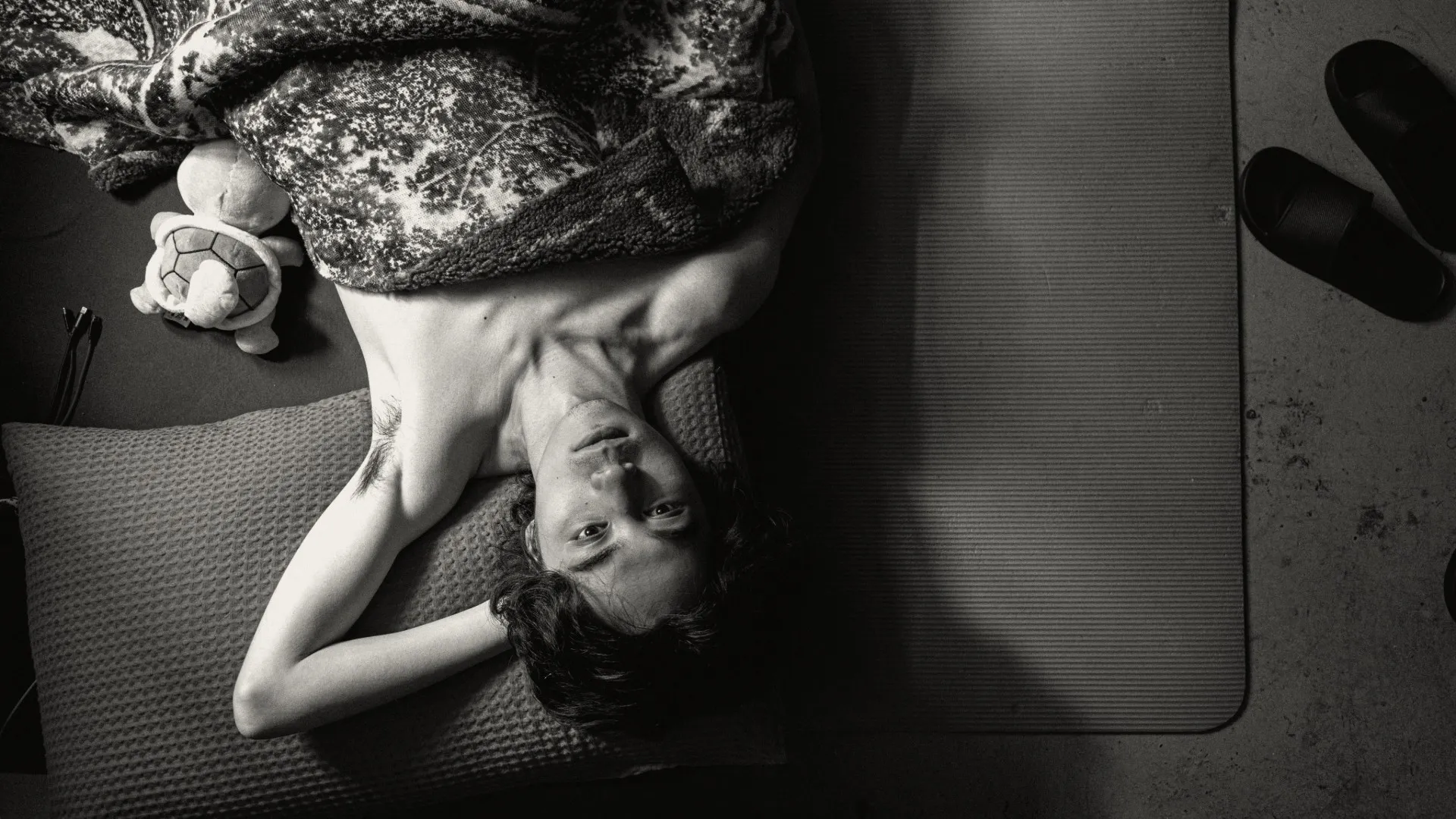
The black-and-white film centers on a man, played by actor Jayden Cheung, set in a ghostly Hong Kong still recovering from the pandemic and the crackdown on pro-democracy movements. He embarks on a journey of sexual encounters with men, each distinct in lived experiences and personalities. Every time he meets a new sexual partner, he assumes the identity of his previous hookup, concealing his own identity while probing into the life of another.
The film is based on Jun’s own experience navigating the queer hookup scene in Hong Kong. He first started using an app to find partners ten years ago, and through the app, he met people he would’ve never encountered in his day-to-day life—people who were so different from him. Especially in Hong Kong, where people of different classes and backgrounds live so closely together, hookup culture allowed him access to diverse lives otherwise hidden behind closed doors.
“In hookup settings, you go into someone’s home and you can feel the kind of person they are—the stranger in front of you—based on how he conducts his living,” said Jun. “So it’s more revealing, but at the same time, it’s more direct, because you have an explicit goal.”
Thinking Like a Journalist
While sex is a central theme that strings the film together, the naturalistic conversations surrounding the topic reveal the man’s search for identity, belonging, and connection in a world that feels almost post-apocalyptic. The protagonist is a curious observer at each encounter, asking questions that are sometimes banal, like what someone does for work, and at other times provocative, like the meaning of protest or the dangers of migration.

As a journalist myself, I’m all too familiar with this instinct to inquire and probe into another’s life. Jun, too, comes from a background in journalism. He studied journalism at the Chinese University of Hong Kong and later received a master’s degree in gender studies at the University of Cambridge. Jun confirmed my suspicion that his impulse to ask questions, even during sex, comes from his training and experiences as a journalist.
“I think before I went to college, I was more of an introvert. I liked to paint. I liked to do things on my own,” said Jun. “But training in journalism school, it’s like you have to force yourself to be curious, to listen, to know what the person in front of you wants to talk about, or things that he doesn’t want to talk about. How do you get them to talk about things that are maybe uncomfortable for them in a nice way, in a polite way, or in a way that would be revealing to themselves?”
Jun’s first two feature films unintentionally became extensions of his reporting projects during his college years. In his first year of journalism school, he pitched a story on transgender marriage in Hong Kong, and in his second year, he wrote a story about a homeless community in Sham Shui Po.
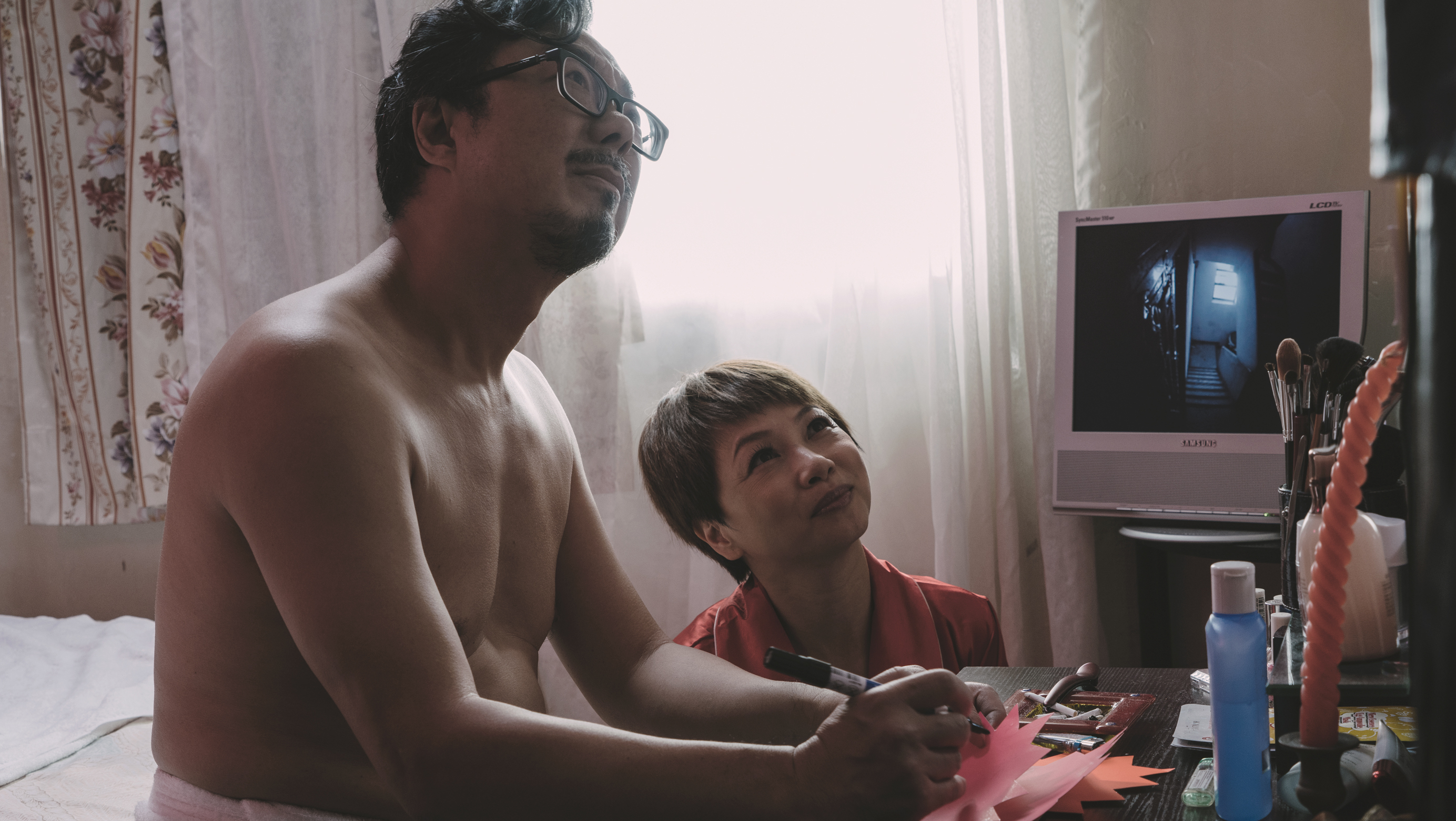
After his first short film Liu Yang He launched him into the film world in 2017, Jun was approached by producers to direct a feature drama about a transgender woman, stepping in for a director who had dropped out of the project. The actors were already set—Philip Keung (姜皓文) and Kara Wai (惠英紅) as leads. Jun quickly agreed, confident that his past reporting on transgender issues and legal battles for marriage gave him the research and perspective needed. The film, Tracey (2018), won awards at Taiwan’s Golden Horse Awards and the Hong Kong Film Awards, while Jun was recognized with nominations for Best New Director and Best Screenplay.
After the success of Tracey, financiers and producers were eager to know what Jun wanted to make next. So he gave them stories from his college reporting projects. That became his second feature, Drifting, a drama about homeless people in Sham Shui Po, this time starring Francis Ng (吳鎮宇). Drifting became the most nominated film at the Golden Horse Awards in 2021, with Jun winning Best Adapted Screenplay.
Calm After the Storm
In three years, Jun had directed one short and two big-budget features—an unconventionally fast rise for a young filmmaker. Then came the pandemic, which forced Jun to pause and really consider what he wanted to make next.
“I felt like I made stories that were so far away from my own lived experience, and then I felt like, if I don’t do something that is more personal, I might not get the chance to do it — the time to do it is when you first start [filmmaking],” said Jun. “When you keep scaling up the production, it’s harder to stay true to yourself because you have all these considerations, all this pressure from financiers and producers that you have to appeal to the mass audience because of the money invested into your project.”
The pandemic had put the world on pause, and the film market took a downturn, so to Jun, this was the perfect time to create something deeply personal with a small budget. Thus came Queerpanorama.
“I went to what I felt was something unique from my perspective, something that only Jun could do,” said Jun. “Queerpanorama is something that is so unique to my gay life, to my life in general. I had to do it at this time, because it’s also very time-specific. It’s about this time after a social movement in Hong Kong and the pandemic that all happened so quickly.”
The film captures this moment of rapid change and uncertainty. This sense of urgency drove Jun to write the first draft of the screenplay in less than two weeks — a speed that allowed him to be completely immersed in this world.
Jun approached financiers and producers but struggled to get funding. With a small budget, he worked with non-professional actors — many of whom were real people Jun had hooked up with. Unlike the intensity of his previous movies, Jun insisted on a slow, patient, and meandering pace for this film.
A Film of Many Perspectives
The name Queerpanorama came to Jun when he submitted the film to the Berlinale’s Panorama section. The film’s original Chinese title, 眾生相, which could be translated as “the face of many,” resonated with the word “panorama.” Panorama also assumes a circular imagery, and the film’s structure was similarly circular.

To me, the word “panorama” is also reminiscent of the panoramic exhibits once seen at World Fairs or museums, where visual scenes are condensed into immersive sets meant to give the viewer a voyeuristic view into the world.
In Queerpanorama, I was struck by the stillness of the shots that provoked a sense of voyeurism in the viewer. From exterior to interior, the film is constructed by straight lines. Outside, we see the hard concrete lines of bridges, escalators, and balconies. Inside, the shots are often boxed in by the straight lines of doorways and countertops. These harsh lines seem to remind the viewer that we are looking into another’s life, constructed to fulfill our guilty voyeuristic desire.
When I asked Jun about designing these shots, he laughed and admitted that the still shots came from the small budget, which necessitated preparing the perfect static camera angle before shooting.
On the other hand, he said, the still shots enhanced the sense of naturalism he hoped to find in the film.
“Our main character, our protagonist, constructs this persona every time he meets someone new. So as an audience, we know that our lead character lies a lot, but then the film is not about lying—it’s a film about finding truth. So the setting, the camera, has to convey a sense of lookout, like a third-person perspective,” Jun told me.
Ultimately, like a panorama, it’s a film that allows the viewer to see something from their own experience. To Western viewers, Jun said, they often see the beautifully constructed image and his craft as a filmmaker. Yet to Asian viewers, they might pick up on the identity crisis he explores in the film as the protagonist often hooks up with Westerners, or the social and political backdrop against which the story unfolds.
As a writer, filmmaker, actor, and overall artist, Jun is certainly not bound by a single medium. He told me he’s eager to get back into commercial films—maybe an action film or a horror film. When he gets back to Hong Kong, he’ll be putting on his second play about three generations of people living in an apartment in New York’s Chinatown.
Catch the trailer to Jun Li’s Queerpanorama below, which was recently premiered in HK.
Cover image via photographer Ziru Wang.

